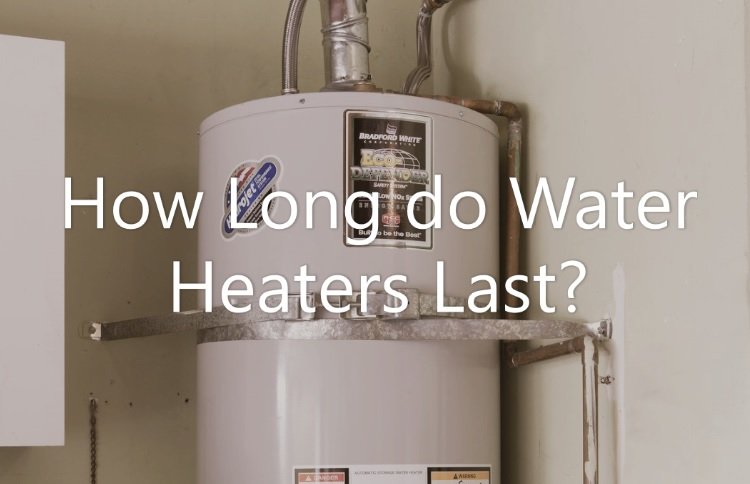How Long do Water Heaters Last?
If you live in a house, chances are you have a water heater in the basement or garage. You may not think about it much, but your water heater can be a major cause of stress—or at least an unpleasant surprise—if it breaks down. Fortunately, there are many things you can do to prevent that from happening. In this article, we’ll look at what parts make up your water heater and why they fail, as well as how long do water heaters last if maintained properly.
The lifespan of water heaters
Water heaters can last for years and years without any problems. A properly maintained water heater will typically last between 10 and 15 years. Even if you don’t maintain your water heater, it may still run for several more years before giving up the ghost.
The lifespan of your water heater depends on how well you take care of it. If you keep up with maintenance tasks such as flushing out sediment from the bottom of the tank to ensure proper flow, cleaning out lime deposits in your heating elements, checking for leaks, and replacing parts when necessary (like filters), then chances are good that even if you don’t have a brand new shiny hot water tank sitting in your basement right now, there’s still one down there somewhere that has seen better days but could probably serve many more years yet.
What are the main parts of a water heater?
Most newer water heaters are made up of a tank, heating element and thermostat. The tank is where the water is stored while it’s being heated. The heating element heats up that water to your desired temperature. The thermostat controls how much energy is used to maintain that temperature by automatically turning off the heating element when it reaches your desired setting.
In order for this system to work properly, however, all three parts must be working properly—and if just one of these items fails or becomes damaged during operation there could be serious consequences for you or your family members (including children).
How Do You Know If Your Water Heater Is Going Bad?
The best way to ensure that your water heater is working properly is to regularly check for signs of trouble. If you notice any of these problems, it’s time to call a plumber:
- Leaking. A leaking water heater indicates that the tank itself has lost its integrity and needs repair or replacement. This problem can also cause damage to floors, walls, and even ceilings in some cases if not addressed quickly enough.
- Strange noises coming from inside the tank or from outside it as well (if you have an electric unit). Sometimes this means there’s sediment buildup inside your heating element; other times it points toward a more serious issue like severe corrosion or cracking/leaking on key internal components like anode rods or heat exchangers. If you hear strange noises coming from your water heater but aren’t sure what they mean, call in an expert who can inspect everything thoroughly before determining whether repairs are necessary or if replacement might be required instead
Why Do Water Heaters Fail?
- Corrosion. The most common reason for water heater failure is corrosion. Over time, the copper tubes in your tank will slowly corrode and begin to leak.
- Sediment build-up. Sediment build-up can also lead to water heater failure because it can clog your pilot light and prevent you from starting a fire, as well as cause overheating that could damage other parts of your tank (like its insulation). Sediment buildup occurs naturally over time because of sediment in your city’s water supply and minerals released from the water itself when it’s heated up by your appliance – especially if you use an older model than what we recommend here at [Company](https://www.companynamehere).
- Scale build-up on internal surfaces can also lead to early failure, as scale buildup makes it more difficult for heaters to work efficiently and could cause damage when temperatures rise inside tanks due to poor airflow or other issues related specifically only
Preventing Water Heater Failure
- Keep the water heater tank full. An empty tank will cause the heating element to run longer and burn out sooner.
- Check for leaks in your water heater and replace any defective parts, such as anode rods or O-rings, that may have failed due to corrosion.
- Clean the outside of your water heater regularly with warm soapy water, cleaning off any scale buildup on the tank or burner assembly. This helps prevent overheating and damage from mineral deposits inside your unit’s heating chamber (where heat is generated).
- Insulate it well; wrap an insulating blanket around its outer surface to help keep heat in and reduce energy costs by 10% or more annually by doing so! It also prevents freezing during winter months when temperatures drop below freezing outside but not necessarily inside homes/buildings because they generate warmth while using electricity/gas sources inside them instead due to insulation materials being used at construction sites like insulation foam sheets which contain air gaps between layers making them effective insulators against cold air currents entering into those spaces where there are no other means available yet available yet today’s technology is still limited unless we were able to re-engineer our current designs into something else entirely different but also useful enough not just only one way anymore either way works fine too as long as it gets done correctly first time around before anything else happens after this point otherwise everything else could become damaged beyond repair if you don’t take care about these things beforehand then later down road even though everything looks okay now doesn’t mean there won’t be problems later down road too soon too late already
Water heaters that are properly maintained can last for years and years
You might be surprised to learn that water heaters that are properly maintained can last for years and years. In fact, most people who have been in their homes for more than 10 years have had the same water heater installed during or shortly after they bought the house. That’s because a well-maintained water heater will last you for at least five to 10 years, even if you’re using it daily.
Conclusion
You can prevent water heater failure by having it checked regularly. If you think your water heater is going bad, call a professional to come out and give it a checkup. They will be able to tell if there’s anything wrong with it and how long it will last before needing replacement or repair work done on it again.

